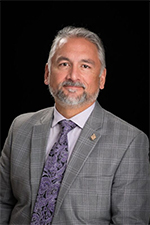Barry Morishita, Mayor of the City of Brooks and President of the Alberta Urban Municipalities Association is speaking out about the Alberta Government’s introduction of Bill 29 – the Local Authorities Election Amendment Act.

The bill proposes removal of caps on overall donations, with a $5,000 contribution limit per person per candidate in any jurisdiction across the province and would remove limits on third-party advertisers outside of the campaign period. It would also stop the practice of requiring disclosure of donors prior to election day.
I spoke with the Mayor in his role as President of the AUMA about the proposed changes this afternoon, as well as his views on the issues facing urban municipalities.
When asked what concerns the AUMA had with the proposed bill, Morishita said that they felt the pushing back of disclosure of donors until after the election reduced transparency and accountability.
“Even though disclosure would happen, but not ‘til March, we think that there are things that happen in the election that has to be known. And when it comes to particular contributors or groups of contributors, we think it’s important information for voters to know before the election.”
Morishita hoped to work with Municipal Affairs Minister Kaycee Madu on making that change.
Another area that raised concerns for the President of the AUMA was the proposal to remove spending caps for third party advertisers.
“Our principle is that we don’t want big money to distort or have an unfair effect on election outcomes. We believe that everyone should have the right to have a say in what’s going on, but it should be fair and equitable, and we don’t think that some of the third-party rules do that.”
The last area that Mayor Morishita saw concerns with was the $5,000 per person per candidate contribution cap, without a global limit.
“A normal kind of regular Albertan would never be able to give $5,000 to a number of candidates, and thus their influence would be diminished relative to somebody who could do that,” said Morishita.
“We’re trying to get fairness, equity, transparency, accountability are the principles we’re talking about and we think some work needs to be done on those issues to ensure those principles stay intact.”
When asked what he liked about the changes that the bill proposed, Morishita mentioned the limits on what could be spent and gathered in campaign periods, and the change that would prevent any surpluses being retained by an incumbent, preventing them being allowed to be used for future campaigns.
“We think that creates a level of fairness; everybody has to start at the same starting point, that’s a good thing.”
Last week, I joined as the AUMA had a conference call to vote on two motions pertaining to keeping local elections local and endorsing principles of local representation. During that call there were concerns expressed about the proposal by the province’s “Fair Deal Panel” to have an equalization referendum that Premier Jason Kenney had indicated would be ran concurrently with the 2021 Municipal elections.
When asked if the AUMA’s statement yesterday and media rounds were connected to these discussions, Morishita said that they weren’t and more was to come on that from the AUMA separately, but that there were concerns about national and provincial topics crowding out the discussion of local issues in municipal elections.
“These are important issues, whether it’s equalization or, well you know, some of the other fair deal things that came out were things like a new police force or a pension that the premier is committed to having referendums on. I think they also deserve the right amount of attention and the proper discourse to them on their own, and we’re certainly not saying that voters can’t discern issue from issue. But what drives a campaign locally are very grassroots very localized issues and if you have a great big referendum campaign that’s funded by different parties that have different views you know the local message can be drowned out.”
“We would have preferred that local elections be, you know, held for locals, it’s now an option for them to have referenda on that day and so I’m hoping that we’ll be having meaningful discussions about what type of referendum should be in that venue.”
One area the AUMA would like to see improvement from both the province and federally is more collaboration with municipalities.
“We need to be in consultation with those because our goal is to provide better government, less expensive government, less cumbersome government. We need to be a true partner in these consultations and if we’re not, then our community is going to suffer for it and that really isn’t what we’re all here for.”
Asked about the spectre of partisan encroachment in civic politics Morishita wasn’t keen on the idea.
“The beauty of municipal politics is that, because we’re not party bound, we really have one master in terms of what our policies are. They’re supposed to be designed to enhance quality of life, our policies are supposed to be set to enhance value for money, our policies are set up to make communities safe and healthy, and to make people feel like this is a place they can raise their family and support their livelihood. Those are not partisan issues. They’re not partisan at all. And they’re not driven by an inflexible policy or approach.”
Mayor Morishita wrapped up with encouraging municipal voters to get engaged and participate so that those elected could better represent them.
“I think if there’s one thing I could say, I would say get involved, get engaged. We’ll have better communities if we’re all working together.”
Robbie Kreger-Smith is a consultant for restaurants, communications, and marketing with previous partisan political experience in Alberta.
Connect: @RKSAlberta
Categories: Uncategorized
